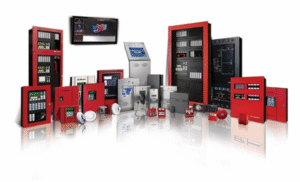Every home runs on power. Lights, fans, refrigerators, televisions, air conditioners—all of them depend on electricity. But the rising cost of electricity and the pressure on the environment make people search for better solutions. That is where a solar system for home comes in.
Why a Solar System for Home Matters?
Think of it as bringing a small power station right to your rooftop. Instead of depending only on the local electricity board, you create your own power from sunlight.
The best part? Sunlight is free, and it shines almost every day. With a good setup, you can cut down your electricity bills and also do something good for the planet.
Understanding a Solar System for Home
A solar system for the home is nothing complicated. It is simply a group of devices that work together to capture sunlight and turn it into usable electricity.
Here’s how it looks in practice:
(i) Solar Panels: These are the shiny panels you see on rooftops. They absorb sunlight and make electricity in the form of direct current (DC).
(ii) Inverter: Your home appliances cannot use DC power directly, so the inverter changes it into alternating current (AC), the kind of power your home wiring already uses.
(iii) Mounting Structure: This is the frame that keeps the solar panels fixed in place, usually on the roof.
(iv) Batteries: Some homes add batteries to store extra energy. This helps during power cuts or at night.
(v) Net Meter: In grid-connected systems, this meter tracks the electricity coming in from the grid and the excess electricity you send back to the grid.
When you put these together, the system works smoothly to power your home.
Types of Solar System Models for Homes
Not every home needs the same setup. Different solar system models are designed for different needs. Here are the three main ones:
1. On-Grid Solar System
(i) This connects directly to your local electricity grid.
(ii) If you produce extra power, it goes back to the grid, and you get credits for it.
(iii) Best for homes in cities and towns where power cuts are rare.
2. Off-Grid Solar System
(i) This works completely on its own, without any link to the electricity grid.
(ii) It uses batteries to store energy for nighttime or cloudy days.
(iii) Ideal for remote areas or homes with frequent power cuts.
3. Hybrid Solar System
(i) A mix of both on-grid and off-grid.
(ii) You stay connected to the grid but also have batteries for backup.
(iii) Great for people who want the security of stored power and the benefit of net metering.
When choosing a solar system model, it depends on where you live, how much power you need, and how often you face power cuts.
Factors to Consider Before Choosing a Solar System for Home
Before you decide, it helps to think about a few key points:
(i) Your Energy Needs: Check your electricity bill to see how much power your home uses every month. A small family may need a smaller solar system, while a large household will need a bigger setup.
(ii) Roof Space and Sunlight: Do you have enough clear space on your roof? Solar panels need open areas where sunlight falls directly.
(iii) Weather Conditions: Homes in sunny regions naturally get more benefit. If you live in a place with frequent rain or fog, you may need a slightly bigger system.
(iv) Government Rules: In many places, you need approvals for grid connection or to claim subsidies. Knowing the rules makes the process easier.
Solar System for Home Price: What Affects the Cost
The first thing most families want to know is the solar system for home price. The truth is, there is no single price—it depends on a few things:
(i) Size of the System: A 1kW system is enough for basic needs like lights and fans, but bigger homes may need 3kW, 5kW, or even more. The price increases with size.
(ii) Type of Solar Panels: Higher-efficiency panels cost more but give better output in less space.
(iii) Inverter Quality: A good inverter makes the system last longer and perform better.
(iv) Installation and Service: Professional installation costs a bit more but ensures safety and durability.
(v) Batteries: If you choose an off-grid or hybrid solar system model with batteries, the cost will rise because batteries are expensive.
While the upfront price may feel high, remember that a solar system is a long-term investment. You save on electricity bills year after year, which balances the cost.
Steps to Choose the Right Solar System for Home
Here’s a simple step-by-step way to choose:
1. Check Your Power Use: Look at your last 6–12 months of bills and note your average monthly usage.
2. Decide the Type of System: Choose between on-grid, off-grid, or hybrid based on your area and needs.
3. Compare Solar System Models: Check different options available in the market.
4. Look at Warranties: Panels and inverters usually come with 10–25 years of warranty. Pick reliable brands.
5. Ask for Quotes: Get price estimates from multiple installers before deciding.
6. Think Long-Term: Don’t just look at today’s cost. Think about savings over 10–20 years.
Solar System Projects at Home: Small to Large Scale Options
A solar system project at home can be as small or as large as you want.
(i) Small Projects: Some people start with a single panel or a small 1kW system just to run lights, a fan, and maybe charge devices. It’s like testing the waters.
(ii) Medium Projects: A 3kW–5kW system is enough for a standard household with appliances like a fridge, TV, washing machine, and a few fans.
(iii) Large Projects: Bigger homes or farmhouses may go for 10kW or more, enough to run air conditioners, water pumps, and everything else.
Each scale of project has its own cost, but the logic remains the same—bigger systems give more savings in the long run.
Long-Term Benefits of Installing a Solar System for Home
Putting money into a solar system isn’t only about saving money now. It has long-term rewards:
(i) Lower Electricity Bills: Every unit of electricity you produce is one less you have to buy. Over the years, this adds up to huge savings.
(ii) Energy Independence: You are less dependent on the grid, which means fewer worries about power cuts or rising prices.
(iii) Environment-Friendly: A solar system reduces pollution and helps fight climate change. It is one of the cleanest ways to power your home.
(iv) Increase in Property Value: Homes with solar systems are often seen as modern and cost-saving, making them more attractive in the real estate market.
Conclusion: Making the Smart Choice
A solar system for home is more than just panels on a roof. It is a smart way to take control of your electricity, cut bills, and use the endless power of the sun. The exact solar system model and solar system for home price will depend on your needs, roof space, and budget.
Whether you start with a small solar system project or go for a large installation, the benefits stay with you for decades. At the end of the day, choosing the right solar system means choosing a brighter, cleaner, and more affordable future for your home.
Frequently Asked Questions (FAQs)
1. Is it possible to run two air conditioners on a 5kW solar system?
Yes, a 5kW solar system can usually handle 2 air conditioners along with a few other regular home appliances. But it depends on how many hours you use them and whether other devices are running at the same time. If both ACs are on together for long hours, you may need to manage your usage or consider a slightly bigger system.
2. How long does a solar battery last at night?
It depends on how big the battery is and how much power you consume at night. For example, a fully charged battery might run lights, fans, and a few small devices for 6–10 hours. If you add heavy appliances like ACs or refrigerators, the backup time will be shorter.
3. Can I run AC directly from a solar panel without an inverter?
You can’t run an AC straight from solar panels. Solar panels make electricity in one form, but your AC and other appliances need it in another form. That’s why an inverter is needed in between to make the power usable.
4. Is an inverter compulsory for solar panels?
Yes, for a home setup it is. Without an inverter, the electricity made by solar panels cannot run your household appliances. The inverter is the heart of the system that makes solar power ready for home use.
5. Should a solar inverter be inside or outside?
It is better to keep the inverter inside the house or in a shaded, dry place. Direct sun, rain, or dust can damage it over time. A cool, well-ventilated spot indoors helps the inverter work smoothly and last longer.


